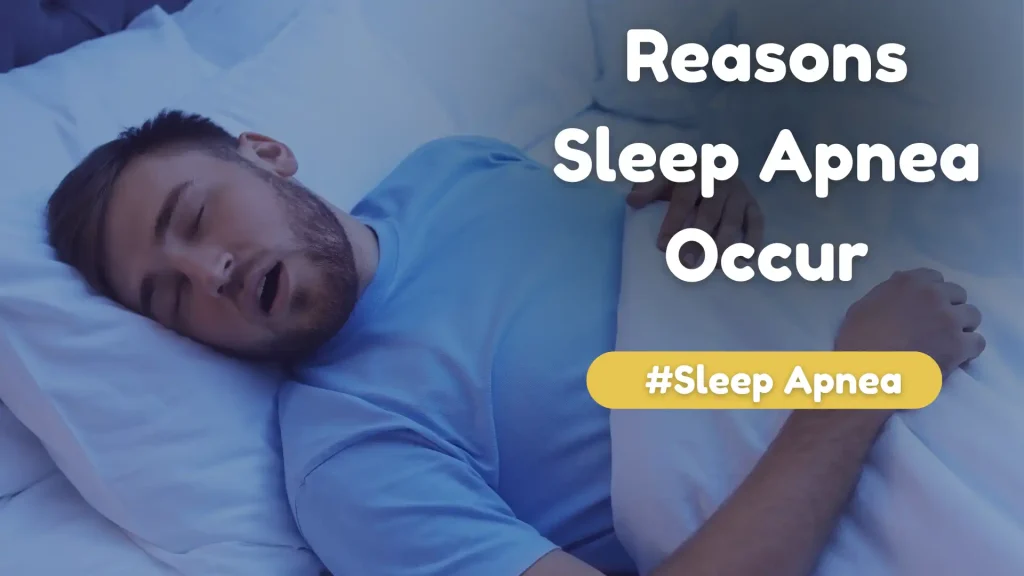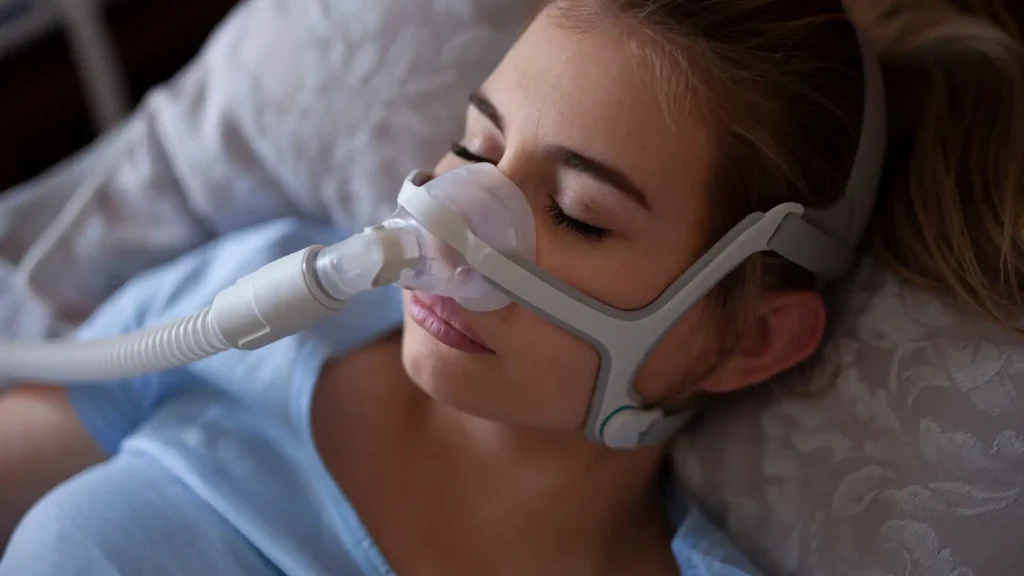Posted on Saturday, July 20th, 2024 at 9:00 am
Sleep apnea is a sleep disorder that causes breathing disruptions during sleep, resulting in poor sleep quality and other serious health problems. People experiencing untreated sleep apnea stop breathing repeatedly while sleeping, meaning the brain and parts of the body may not receive enough oxygen. Why does sleep apnea occur? Identifying why sleep problems like sleep apnea occur can help you take proactive steps to manage and treat it effectively.
Why Does Sleep Apnea Occur?
Sleep apnea can result from various risk factors, which differ depending on the type of sleep apnea. Therefore, identifying these causes is essential for effective diagnosis and treatment. Common causes of sleep apnea include:
- Muscle Relaxation and Airway Obstruction – Excessive relaxation of throat muscles during sleep can narrow or collapse the airway, particularly in individuals with anatomical variations like a narrow throat or enlarged tonsils. Obesity puts additional pressure on the airway, increasing the risk of obstruction when muscles relax.
- Central Nervous System Factors – Conditions such as heart diseases, neurological diseases, and opioid use can impair the brain’s ability to regulate breathing. This interference with respiratory control reduces or eliminates the drive to breathe, leading to central sleep apnea.
- Lifestyle and Environmental Triggers – Factors such as obesity, age, alcohol, air pollution, and sedative use, smoking, nasal congestion, and sleep position play a significant role in exacerbating sleep apnea. Excess neck weight, alcohol, smoking-induced inflammation, chronic nasal congestion, and sleeping on the back can all worsen sleep apnea symptoms.
Types of Sleep Apnea
There are three types of sleep apnea, each with its unique characteristics and underlying causes that require specific approaches to treatment. These types of medical conditions include:
- Obstructive Sleep Apnea (OSA) – The most common form of sleep apnea, OSA, occurs when the muscles at the rear of the throat relax excessively. These muscles support structures such as the soft palate, uvula, tonsils, and tongue. When these muscles relax, the airway narrows or closes as you breathe in, making it difficult to get enough air, which can lower blood oxygen levels. Your brain senses the inability to breathe and briefly rouses you from sleep to make your airway open.
- Central Sleep Apnea (CSA) – Unlike OSA, central sleep apnea occurs because your brain fails to send proper signals to breathing muscles. This means you don’t expend the effort to breathe for short periods. You might awaken with shortness of breath or have difficulty getting to sleep or staying asleep.
- Complex Sleep Apnea Syndrome – This condition occurs when a person has obstructive and central sleep apnea. Specifically, individuals with complex sleep apnea syndrome have airway blockages from OSA and issues with brain signals for breathing, characteristic of CSA. Consequently, this dual issue can complicate treatment, as addressing one type may not fully resolve the symptoms.
Symptoms of Sleep Apnea
Why does sleep apnea occur? Recognizing sleep apnea symptoms is the first step toward diagnosing and treating this disorder to prevent any long-term problems. These signs and symptoms include:
- Loud snoring
- Abrupt awakening by gasping or choking
- Difficulty staying asleep
- Episodes of breathing cessation during sleep
- Awakening with a dry mouth or sore throat
- Attention problems
- Irritability
- Excessive daytime sleepiness
- Morning headache
Treatment Options for Sleep Apnea
Doctors typically start by assessing symptoms and medical history to diagnose sleep apnea. They may then recommend a sleep study, which can occur in a sleep lab or home using portable equipment. Doctors can effectively monitor breathing patterns, oxygen levels, and other critical data to confirm a diagnosis.
Treatment options vary depending on the severity and type of sleep apnea, and patients may need to implement a combination of treatment solutions, including:
- Lifestyle Changes – Weight loss, exercise, avoiding alcohol and smoking, and changing sleep positions can help mild cases.
- Continuous Positive Airway Pressure (CPAP) – This machine delivers air pressure through a mask while you sleep, keeping your airway passages open.
- Other Airway Pressure Devices – For those who can’t tolerate CPAP, alternatives include bilevel-positive airway pressure (BPAP) devices and adaptive servo-ventilation (ASV).
- Oral Appliances – These help keep your throat open by bringing your jaw forward.
- Surgery – Options include tissue removal, shrinkage, jaw repositioning, implants, nerve stimulation, and creating a new air passageway.
Contact an Experienced Sleep Disorder Professional
Are you struggling with restless nights or constant daytime fatigue? Don’t let sleep apnea hold you back any longer. At Silent Night Therapy, we have extensive experience diagnosing sleep apnea and pride ourselves on creating personalized, practical solutions tailored just for you. Our team provides comprehensive evaluations, including convenient at-home sleep tests, to identify your condition and start a treatment plan to improve your sleep and overall health care. Contact us online or call us today at 631-983-2463 to schedule a consultation.

